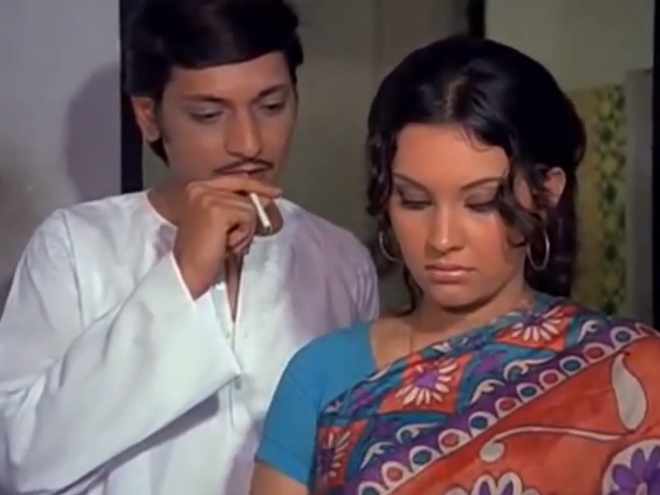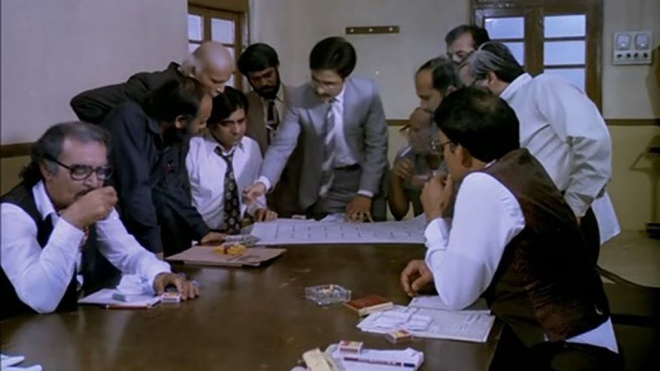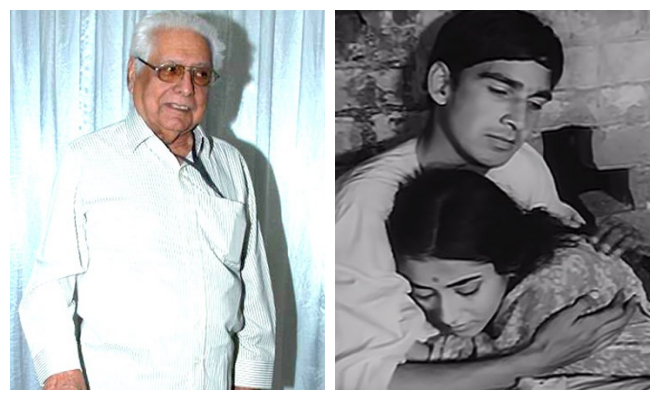Basu Chatterjee, the filmmaker of movies like Rajnigandha, Chhoti Si Baat, Ek Ruka Hua Faisla passed away in Mumbai at the age of 90 due to age related ailments.
The filmmaker, who’s known for his middle-of-road light-hearted cinema focussing on aam aadmi and their dilemmas, was born on January 10, 1930 in Rajasthan’s Ajmer and did his initial schooling in Uttar Pradesh.
Basu Chatterjee moved to Mumbai at the age of 18 and for a year worked in Mumbai’s popular weekly tabloid Blitz as a cartoonist. By the age of 29 (in the year 1959), he developed an interest in filmmaking and started following work of the veterans.
He also assisted Basu Bhattacharya in his film Teesri Kasam. In 1968 he decided to take the plunge and took loan from Film Finance Corporation to adapt Rajendra Yadav’s popular novel Sara Akash for silver screen. The small budget movie not only did well at the box-office, it also won its debut cinematographer KK Mahajan a National Film Award for Best Cinematography.
Sara Akash is the story of a joint family where Samar and Prabha’s marriage is fixed by their families. Samar hasn’t completed his education and he is not ready for marriage while Prabha is a BA pass. Post their marriage, the husband and wife do not get along well and are not even on speaking terms. Samar’s family members only add to the problem.

Prabha decides to go to her parents’ house and it is then Samar starts daydreaming about her. Basu Chatterjee has used this style of showing daydreams in his subsequent films too.
Soon enough, Prabha comes back to her husband’s house and Samar’s family members are happy that she hasn’t shared details of her troubled marriage with her parents. One summer night while sleeping at terrace, Prabha has an emotional breakdown and Samar hesitatingly breaks the ice and asks her why she’s crying. Prabha is elated Samar’s changed attitude and finally things start getting better for them.
After Sara Akash’s success, Basu Chatterjee directed Piya Ka Ghar next year. The film was lifted by the soulful performance of Jaya Bhaduri and doors of success began opening up for Chatterjee.


The success of Rajnigandha in 1974 and Chhoti Si Baat in 1975 (both starring Amol Palekar and Vidya Sinha) built Basu Chatterjee’s reputation as a filmmaker who could turn small budget films into commercial successes. Superstars like Rajesh Khanna and Dev Anand started showing interest in working with him and he was signed on by big filmmakers.
He soon started delivering four films a year. In 1977, he directed Swami, Safed Jhooth, Priyatama and Khatta Meetha. In 1978, he delivered Chakravyuh, Dillagi, Tumhare Liye, and Do Ladke Dono Kadke. In 1979, he directed Manzil, Jeena Yahaan, Baaton Baaton Mein, and Prem Vivah. All the films were like factory made products from Chatterjee’s stable.

Two films that deserve a special mention here are Ek Ruka Hua Faisla (1986) and Kamla Ki Maut (1989). These films were of a different flavour and stood apart from the usual Chatterjee films. While Ek Ruka Hua…was a courtroom drama and adapted from American movie 12 Angry Men, Kamla Ki Maut deals with issues of suicide, pre-marital sex, and relationship in modern India.
Apart from Hindi films Chatterjee also directed Bengali movies like Hothat Brishti, Hochcheta Ki and Hothat Shei Din.
He also directed Doordarshan’s popular TV shows Rajit Kapoor starrer Byomkesh Bakshi and Priya Tendulkar-starrer Rajani.
(Inputs from Manomhan Chaddha’s book Hindi Cinema Ka Itihaas)

